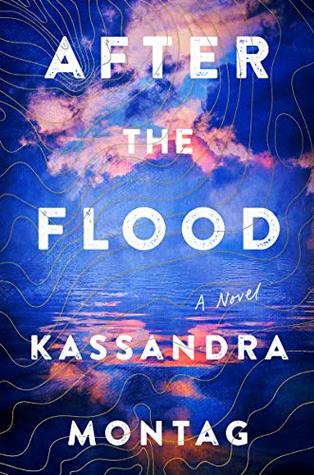More on this book
Community
Kindle Notes & Highlights
CHILDREN THINK WE make them, but we don’t. They exist somewhere else, before us, before time. They come into the world and make us. They make us by breaking us first.
There were as many ways to react as people, she always said.
I liked him watching me, liked the slow burn it gave me.
It wasn’t just the loss of a thing that was a burden but the loss even of desiring it. We should at least get to keep our desire, I thought.
The water rose as if the earth wanted vengeance, the water creeping across the plains like a single warrior.
When Pearl came she was glistening and pale and silent. Her skin looked like water. As if she’d risen out of the depths to meet me.
When I think of those days, of losing the people I’ve loved, I think of how my loneliness deepened, like being lowered into a well, water rising around me as I clawed at the stone walls, reaching for sunlight. How you get used to being at the bottom of a well. How you wouldn’t recognize a rope if it was thrown down to you.
I hadn’t realized how much I lived to give my child the things I valued. How my own enjoyment of them had grown dull with age. But other times, when everything was so dark out on the sea that I felt already erased, it seemed like a kindness that life before the floods had gone on for as long as it did. Like a miracle without a name.
Even in the upheaval there were incandescent moments like that—moments I’d spend the rest of my life reaching for.
I couldn’t regret my children, but I also couldn’t be free from them, from the way they had opened me up, left me exposed. I had never felt as vulnerable as I had after birth, nor as strong. It was a greater vulnerability than I ever felt facing death, which only felt like a blank expanse, not like free-falling, which was how I felt every day trying to care for Pearl in this world.
No coast lay in sight; the world was so flat and blue, your eyes could get tired of it. It was disorienting—this much space. Like a person needed something to dwarf them. Even the clouds were as thin as gauze.
I was so young, I wasn’t accustomed to loss and impermanence the way Grandfather was. I hadn’t known how to expect it or accept it.
Asking about a person’s past always made them open or close, and I always wanted to know which it’d do.
“I know I sound idealistic,” Abran said. “But you have to risk idealism to have hope.”
“You may think you have no beliefs or hopes, but you do. It’s better you be aware of them since you already have them,”
“Maybe we don’t always make our fate, but we decide how to meet our fate,”
would never get over how quickly the water could swallow a person; it would always frighten me.
“I don’t want another thing to regret.”
Who were we without people who would come after us?
“Some people have forgotten how to be afraid. Lost too much. I don’t ever want to stop being afraid.”
Some people who had wanted children decided they couldn’t care for them with water approaching their doorstep. And others, who had never felt particular on the subject, suddenly started having a child a year, birthing them like flowers in spring, to remind themselves of how fertility felt.
I also saw regret in him, but a kind of half regret. The kind of regret you have when you feel bad about something, but not bad enough to stop doing it.
Maybe there was something else, beneath the anger, beneath the pain. Some third option, between revenge and absolution, that hovered just beyond my consciousness, waiting to be named. I knew I hated him too much to not still love him.


